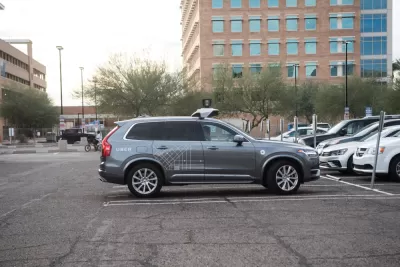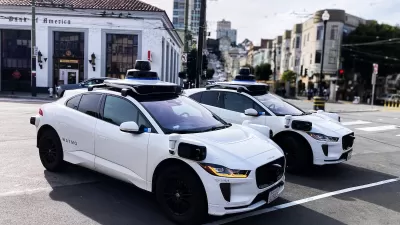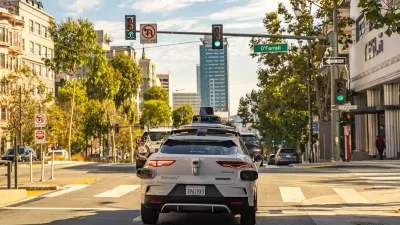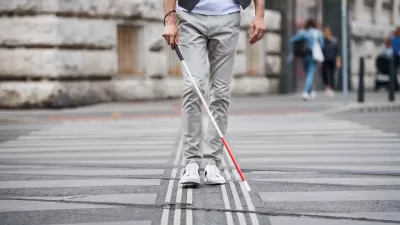Five self-driving car companies are currently operating in Pittsburgh, without much critical rigor in asking about the consequences of the technology to the city.

"The public has been exposed to risks associated with being guinea pigs in an AV lab, yet not a single public meeting has been held to address public concerns," writes Angie Schmitt, to introduce the premise of a new report from Pittsburghers for Public Transit (PPT) intended to raise awareness about the potential negative consequences of handing over the public realm to technological experiments.
More specifically, according to Schmitt, the report "argues that public concerns about equity, the environment and job security aren’t playing a larger role in the conversation about autonomous vehicle deployment."
Then there are questions about safety risks presented by self-driving cars to pedestrians and people on bikes. In addition to the risks exemplified by the first pedestrian killed by a self-driving car operated by Uber in Tempe, "pedestrians and cyclists risk losing funding for essential infrastructure like sidewalks and crosswalks to special street treatments for AVs," according to Schmitt's summary of the report.
"The city of Pittsburgh, for example, allocated $23 million from its 'Department of Mobility and Infrastructure' for testing and deployment of an 'autonomous micro transit shuttle,' which [Laura] Weins, the PPT director, called 'not really mass transit.'"
FULL STORY: Pittsburgh Reveals the Downside of Self-Driving Cars

Alabama: Trump Terminates Settlements for Black Communities Harmed By Raw Sewage
Trump deemed the landmark civil rights agreement “illegal DEI and environmental justice policy.”

Planetizen Federal Action Tracker
A weekly monitor of how Trump’s orders and actions are impacting planners and planning in America.

Why Should We Subsidize Public Transportation?
Many public transit agencies face financial stress due to rising costs, declining fare revenue, and declining subsidies. Transit advocates must provide a strong business case for increasing public transit funding.

Understanding Road Diets
An explainer from Momentum highlights the advantages of reducing vehicle lanes in favor of more bike, transit, and pedestrian infrastructure.

New California Law Regulates Warehouse Pollution
A new law tightens building and emissions regulations for large distribution warehouses to mitigate air pollution and traffic in surrounding communities.

Phoenix Announces Opening Date for Light Rail Extension
The South Central extension will connect South Phoenix to downtown and other major hubs starting on June 7.
Urban Design for Planners 1: Software Tools
This six-course series explores essential urban design concepts using open source software and equips planners with the tools they need to participate fully in the urban design process.
Planning for Universal Design
Learn the tools for implementing Universal Design in planning regulations.
Caltrans
Smith Gee Studio
Institute for Housing and Urban Development Studies (IHS)
City of Grandview
Harvard GSD Executive Education
Toledo-Lucas County Plan Commissions
Salt Lake City
NYU Wagner Graduate School of Public Service





























